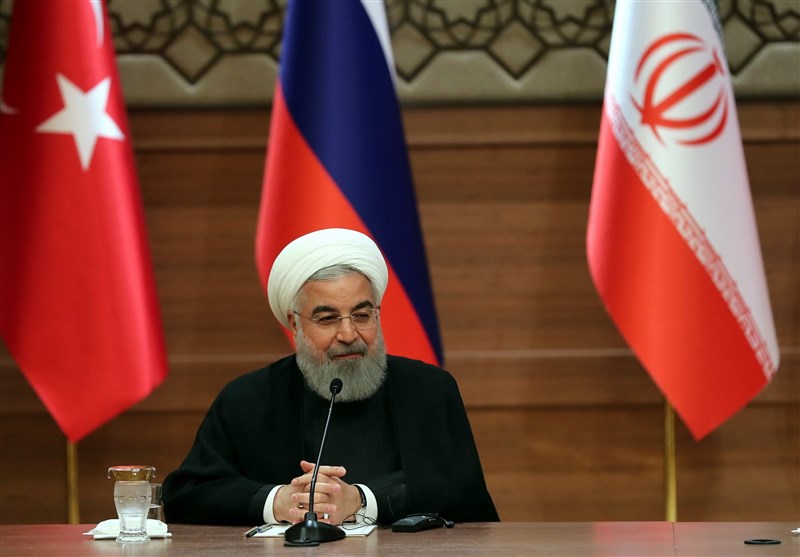
No One But Syrian Nation Should Determine Syria’s Future: Rouhani

No country has the right to decide on the future of Syria that belongs to the
Syrian people, Rouhani told reporters in Ankara on Wednesday after a trilateral
meeting of the presidents of Iran, Russia and Turkey.
Maintaining Syria’s territorial integrity, national sovereignty and unity and
independence should be appreciated by everyone as a major demand of the Syrian
people, he added.
"In view of the Islamic Republic of Iran, ... Syria (crisis) has no military
solution and should be resolved politically. We should all help to bring the war
to an end.”
Rouhani went on to say that it would be a great celebration day for the region
when the war in Syria ends, terrorists leave the region, Syrian refugees return
home and the Syrian people can determine their fate and future in a free
election.
The Iranian president further hailed the efforts made by Iran, Russia and Turkey
on the path of fighting terrorism and establishing ceasefires in Syria,
including through the Astana peace talks and the trilateral summits in Sochi and
Anakara.
Rouhani and his Russian and Turkish counterparts, Vladimir Putin and Recep
Tayyip Erdogan, in their meeting on Wednesday reaffirmed their determination to
continue active cooperation on Syria for the achievement of lasting ceasefire
between the conflicting parties.
The presidents of Iran, Russia and Turkey, whose countries act as guarantors of
the Syria ceasefire, also reaffirmed their determination to continue their
cooperation in order to ultimately eliminate Daesh, Nusra Front and all other
individuals, groups, and entities associated with al-Qaeda or Daesh as
identified by the UN Security Council and underscored the success of their
collective efforts in the fight against international terrorism.
It was the second such tripartite summit after the first was hosted by Putin in
November in the Black Sea city of Sochi.
As the three countries launched Syria peace talks in Astana, they held a series
of summits in Sochi to bring together the conflicting parties in Syria.
Within the framework of these efforts, they agreed in Astana to establish
de-escalation zones in the Arab country's northern province of Idlib and parts
of neighboring Latakia, Hama and Aleppo. Under the Astana agreement, Turkey is
to gradually establish 12 observation points from Idlib's north to south to
monitor and sustain the current cease-fire agreement for the de-escalation
zones, deliver humanitarian aid and ensure the secure return of displaced
people.
The leaders of the three countries have been stressing that the de-escalation
zones deal has been successful in ending clashes in various locations. However,
a countrywide cease-fire to end the armed conflicts has not been achieved so
far.
Source:Tasnim















